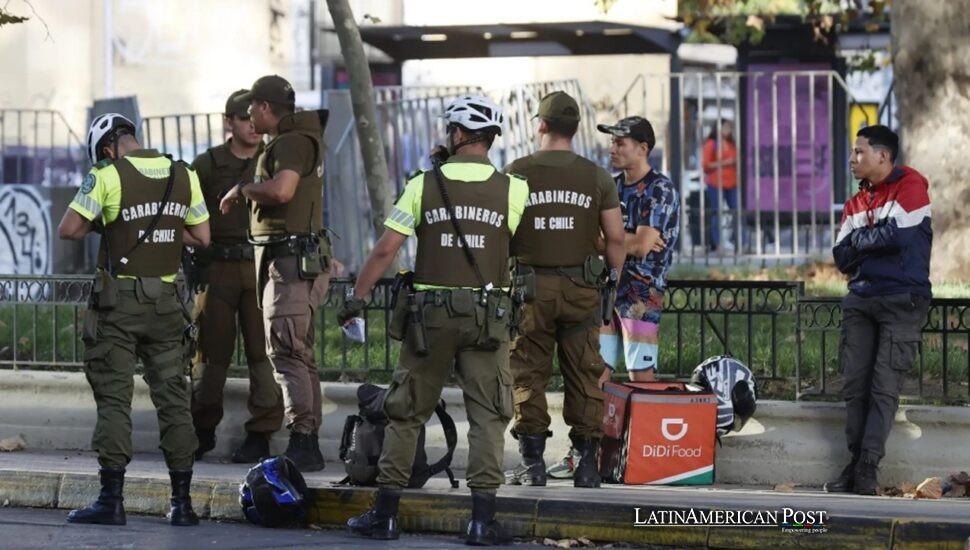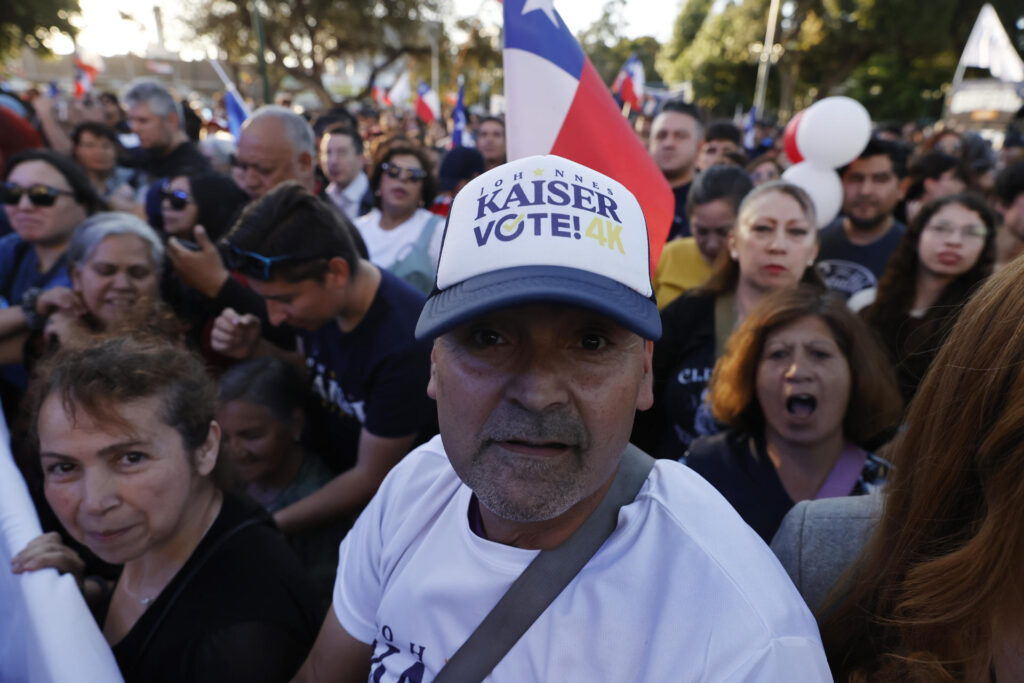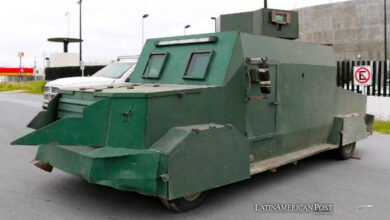Chile Turns Right as Crime Anxiety Reshapes Political Map

Once Latin America’s safest country, Chile now votes under the shadow of fear. Crime, migration, and nostalgia for strongman rule dominate an election that could redraw the continent’s political map—and test whether democracy can still soothe a frightened nation, AFP reports.
From Model Nation To Fearful Republic
A decade ago, Chile was the region’s overachiever—a technocratic success story with Scandinavian ambitions. Today, it feels like a country holding its breath. Murders, kidnappings, and drug trafficking have soared, transforming once-placid cities like Iquique and Antofagasta into outposts of dread. The shock runs deep because Chile, more than its neighbors, believed it had outgrown this chaos.
“I just want the next president to have more of an iron fist,” said Hernán González, a 28-year-old youth educator in Iquique. “We need mano dura.” He blames the “migrant hordes,” he says, brought “trafficking, crime, and juvenile drug use” to his community. Whether or not the data agrees, the emotion is undeniable—and it’s rewriting the political script of a country that once prided itself on moderation.
This Sunday’s presidential election is the culmination of that anxiety. The far-right, led by José Antonio Kast, is surging, propelled by promises of mass deportations and “order above all.” The ruling center-left coalition, exhausted after four years in power, faces a wall of frustration and fear.
A Left Cornered, A Right Renewed
Jeannette Jara, a 51-year-old communist and social reformer, leads the polls for the first round. She is the first of her kind—a working-class woman with a lifetime of activism—yet faces a towering obstacle: Chile’s deep distrust of communism. In a country that still worships markets and efficiency, her promises of welfare reform sound almost quaint against the drumbeat of “security now.”
Even Jara’s supporters acknowledge that she may not survive the second round on December 14. Polls suggest she would lose to Kast, to conservative former mayor Evelyn Matthei, or to Johannes Kaiser, a far-right YouTuber who built a following with anti-migration tirades and misogynistic jabs.
The stakes stretch beyond Santiago’s skyline. “A far-right win in Chile would shake Latin America,” said Guillaume Long, senior fellow at the U.S. Center for Economic Policy and Research and Ecuador’s former foreign minister, in comments to AFP. “You would see Chile forming close alliances with Javier Milei in Argentina and with Donald Trump if he returns to the White House.”
Just four years ago, Gabriel Boric, a bearded former student leader, swept to power promising a welfare state, environmental reform, and a new constitution to bury Augusto Pinochet’s dictatorship-era charter. But the promise curdled. Organized crime from Venezuela, Peru, and Colombia seeped into Chile’s ports and neighborhoods. By 2024, the country’s homicide rate had nearly doubled, and the idealism of the Boric era had given way to barricades, gated streets, and fear.

The Strongmen Return To The Stage
For Kast, 59, this moment feels ordained. A father of nine and the son of a soldier in Hitler’s Nazi army, he channels the same iron rhetoric that once defined Pinochet’s Chile—tempered, this time, with social media polish. “Those who will be afraid in the future are narcotraffickers and terrorists,” he boomed in the final televised debate. The crowd roared, sensing momentum.
His platform mirrors that of El Salvador’s Nayib Bukele, whose crackdown on gangs turned him into a continental folk hero. Kast wants curfews, sweeping arrests, and the immediate expulsion of undocumented migrants. He vows to make Chile’s borders “as strong as its volcanoes.”
Yet even Kast has found himself flanked by harder voices. Johannes Kaiser, 49, a self-styled Trump disciple, has captured the disillusioned with his promise to “shoot first, ask later.” He proposes sending deportees with criminal records to El Salvador’s infamous CECOT prison, the world’s largest. His appeal lies in fury, not finesse—a weapon sharpened by YouTube algorithms and frustration.
Jara, meanwhile, has tried to straddle empathy and pragmatism. She reminds voters of her working-class roots in Santiago’s barrios and of her record—raising the minimum wage, cutting the workweek from 45 to 40 hours, and reforming pensions. “I know the damage drugs cause,” she told reporters, “I saw it growing up.” But her insistence that democracy, not dictatorship, must restore order feels almost old-fashioned in a political moment that worships speed over patience.
A Choice Between Fear And Fatigue
What’s unfolding in Chile is not just an election—it’s a referendum on fear. A country that once symbolized post-authoritarian stability is flirting again with the seductions of control. The far-right’s language of protection has replaced the left’s language of rights.
Some voters, like designer Javiera Silva, 25, refuse to concede that shift. “We’re all scared,” she told AFP. “But my greater fear is losing our freedoms.” She plans to vote for Jara, not out of faith in the left but out of alarm at what the right might undo.
That anxiety is widespread but scattered. Chile’s democracy, still young compared to its trauma, has yet to find a stable center. Boric’s collapse in popularity proved that moral victories—writing a new constitution, promising equality—can’t survive when citizens no longer feel safe on the street. The political imagination has turned inward. People want gates, not ideals.
If Kast wins, expect Chile to pivot sharply—to embrace Bukele’s “order first” experiment and reassert military pride long buried under democratic guilt. If Jara somehow defies gravity, she will inherit a terrified electorate demanding immediate results. In both cases, the cost of governing will be steep: a society conditioned to expect salvation from fear.
Chile’s election is a mirror for the region. Argentina’s Milei has already swung the pendulum toward shock therapy; Bolivia’s left is floundering; Colombia’s and Brazil’s governments face restless opposition. Santiago could soon join the new conservative bloc, recasting Latin America’s political identity from hopeful to hardened.
A victory built on fear rarely ends at the ballot box. It seeps into daily life—into who is suspected, who is deported, who is silenced. The coming Sunday is less a choice between candidates than between two versions of Chile: one that still believes in democratic repair, and another that trusts only the fist.
In that duel, democracy may win the vote—but lose the mood.
Also Read: Chile’s Two Weeks of Silence: When Democracy Turns Off the Lights





